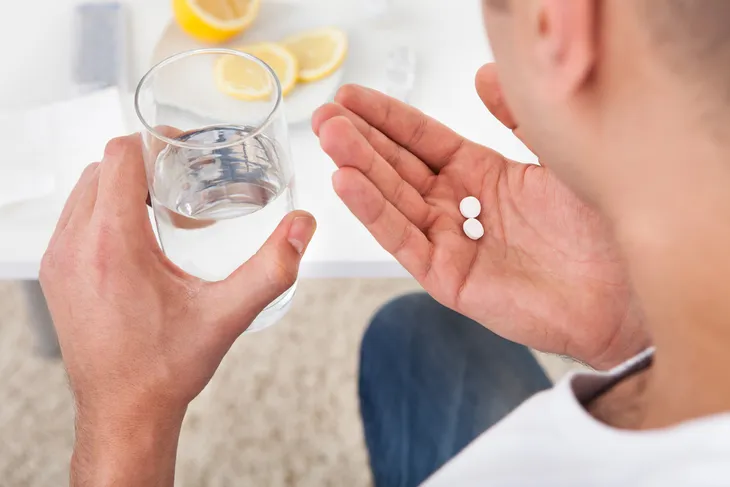Do you have a persistent feeling of sadness that you can’t explain? Then it’s possible you might get a diagnosis of dysthymia disorder, now referred to in the medical community as persistent depressive disorder (PDD) combining dysthymia and chronic major depressive disorder, according to Very Well Mind.
While you might experience some forms of depression even if things are going well for you otherwise, there’s no doubt that experiencing dysthymia disorder can impact all areas of your life from relationships to even your physical well-being. Read on to learn more about it…
What Is Dysthymia Disorder (Or PDD)?
According to Healthline, dysthymia is considered a form of chronic depression, meaning it’s been ongoing for years. “Like other types of depression, PDD causes continuous feelings of deep sadness and hopelessness,” says the source.
However, while PDD can interfere with the enjoyment of everyday activities, PDD is less severe than some other forms of depression. Luckily, there are several treatment options available which we’ll discuss later in this article.
 fizkes / Shutterstock
fizkes / ShutterstockDysthymia vs. Depression: What’s the Difference?
You might still be a bit confused as to the difference between dysthymia and major depressive disorder, and although there is some overlap, there are distinct differences, according to WebMD. For example, you can be diagnosed with major depressive disorder (MDD) if you’ve been experiencing symptoms for only 2-weeks, vs. 2-years for dysthymia.
While patients with PDD have “clinically significant depression over a long period of time,” the symptoms aren’t often severe enough to qualify as MDD. However, Healthline adds that while those with MDD can return to a normal mood when they’re not experiencing an episode, those with PDD don’t, and often can’t remember what it’s like to feel otherwise.
What Are the Symptoms?
The same source explains that the symptoms of PDD are similar to depression, namely a sad mood that lingers and loss of enjoyment in life. However, it notes that patients have symptoms most days for at least 2-years.
While symptoms can be milder, they also include sleep problems, difficulty concentrating, lack of energy, poor self-esteem, loss of productivity, and lack of appetite. It also might lead the patient into a pattern of avoiding social activities.
Can It Worsen?
WebMD said it’s “not uncommon” for those suffering from dysthymia to concurrently experience an episode of major depression. This is what’s known as “double depression” that can seriously disrupt lives, explains the source.
It says because of the nature of dysthymia, and the fact it can have these complications, it’s important to visit your doctor for an accurate diagnosis so you can get the right treatments.
How Is It Diagnosed?
The Mayo Clinic says your doctor may take a few approaches if they suspect you might be suffering from PDD. For example, they might perform a physical exam and ask you questions about your overall health. This is because the PDD might be traced to an underlying condition, it adds.
With that in mind, the doctor may also send you for lab/blood tests to rule out other conditions, such as hypothyroidism.
Diagnosing Dysthymia: Psychological Evaluation
Beyond the physical exams/tests, a doctor may also provide a psychological evaluation using a questionnaire in some cases to try to pin down a diagnosis of PDD (as opposed to bipolar disorder or seasonal affective disorder) it notes.
In order to get a diagnosis of PDD, you have to have had symptoms most of the time for 2-or more years (1-year for children).
What Are the Risk Factors for Dysthymia Disorder?
According to WebMD, about 1.5-percent of adults in the U.S. are affected by this disorder. But there is no exact reason determined as to why one would experience it, notes the source.
However, experts are a bit baffled by the causes of depression in general. The source says genetics might play a role in some cases (but definitely not all). “Abnormal functioning in brain circuits or nerve cell pathways that connect different brain regions regulating mood” is also suspected, as are other chronic illnesses and major life stressors (grief or trauma are examples).
Can It Be Treated?
Luckily, yes. Hopkins Medicine says doctors can employ medications or therapy, or a combination of the two. Let’s explore both of these in more depth next.
Treatment: Therapy
Talk therapy/psychotherapy (usually cognitive behavioral therapy or interpersonal therapy) can be a great treatment option. It focuses on “changing distorted views of yourself and your environment.”
This type of therapy can be done individually or in a group. During the sessions, the therapist will help you express your feelings and thoughts in a healthy way. They will also help you manage your emotions and identify triggers that aggravate your symptoms.
Treatment: Medication
Meanwhile, as far as drug therapy goes, doctors could prescribe antidepressants. This may include selective serotonin reuptake inhibitors (SSRIs), tricyclic antidepressants (TCAs), and serotonin and norepinephrine reuptake inhibitors (SNRIs).
Antidepressants can take up to 6-weeks to reach effect, which the source says might cause some individuals to stop taking them early on. If it’s not working, it’s advised to talk to a healthcare professional about switching or adding medicines.
Treatment: Lifestyle Changes
Making a few lifestyle changes is essential for your treatment plan because dysthymia is a long-lasting condition. Your doctor may recommend physical exercise (about three times per week) and avoiding alcohol and drugs.
Eating a healthy diet full of fruits, vegetables, lean sources of protein, and whole grains may also benefit you. Finally, you may also benefit from practicing yoga, tai chi, or meditation as well as writing in a journal.
What Is the Outlook?
Healthline warns that PDD is a chronic condition, meaning some patients may never recover from it completely. While treatments can help improve the symptoms for many, they can have varying degrees of success.
The source urges anyone having trouble coping with PDD to reach out immediately for help and to talk about it. It’s important to maintain any treatments (talk or medications) and visit a doctor for checkups as advised.
What Can I Do to Improve My Outlook?
Aside from the important decision to seek advice from a doctor, there are some ongoing things you can do to help manage the symptoms. For example, the Mayo Clinic says that eating healthier and getting more exercise can have a positive impact on the condition. The same goes for getting proper sleep.
Other techniques include learning your own triggers and having a plan to avoid them if possible. You can also ask friends or family to help you monitor any warning signs. Finally, avoid self-medicating. While it can make you feel better in the short term, it can ultimately deepen the depression and make it harder to treat.















